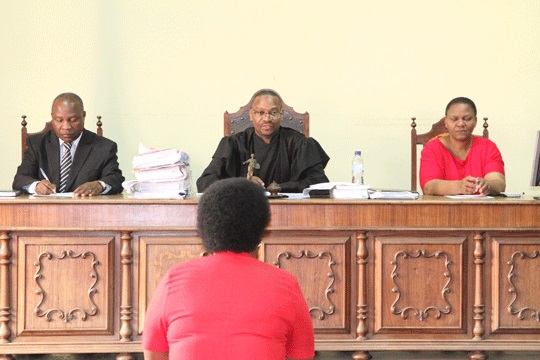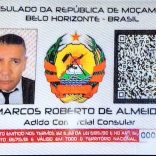Mozambique: Ship dropped anchor off Xai-Xai beach due to bad weather, now on its way to Malta
FDA fraud case: Chief suspect denies all charges

Notícias
The former chairperson of the Mozambican government’s Agricultural Development Fund (FDA), Setina Titosse, the main suspect in the case of a massive fraud in which 170 million meticais (about 2.8 millon dollars, at current exchange rate) was siphoned out of the FDA, on Wednesday claimed she was innocent of all the charges against her.
Addressing the Maputo City Court on the second day of her trial, Titosse denied that the projects set up under lines of credit for small and medium livestock companies were fake, existing only on paper, and simply intended to drain money from the FDA.
She claimed that all the projects she had approved are still within the deadlines for returning the loans to the FDA. “There’s a period of validity, which goes until 2019”, she said. “When people ask for a loan, they’re free to manage the money. What s important is that they repay the money within the agreed deadlines”.
Yet the prosecution case had shown that Titosse had invited relatives and friends with no experience of farming to apply for money. According to the investigations undertaken by the Central Office for the Fight against Corruption (GCCC), in one of the early cases, in 2013, Titosse drew up a cattle breeding and meat marketing project, budgeted at 3.9 million meticais, in the name of her cousin, Lerena Massingue.
Nobody from the FDA visited the site of the supposed project, and the GCCC found that Titosse instructed Massingue to transfer the funds to her sister, Julieta Titosse, via the company Multi-Press, owned by Dias Mucavele, who was the lover of Julieta Titosse.
Another beneficiary, Dercio Mananhe, received funds for cattle raising in Chibuto district, in Gaza province. But the GCCC found he had no experience in livestock and had never set foot in Chibuto.
Titosse admitted to judge Alexandre Samuel that money had been given to people who could not prove they had the land on which to implement their projects. “We tried to facilitate things, even when we had no proof of land for implementation, because most Mozambicans request land, but it takes a long time to obtain land titles (known as DUATs)”, she said.
She also admitted that money from people who had obtained FDA loans flowed into her own bank account, but claimed this was not money from the fraud, but legitimate payment for her own livestock which she had sold to these individuals.
“I breed cattle”, she told the court. “Some people with projects financed by the FDA purchased cattle at my institution”.
She also alleged that cars and houses, which the prosecution says were purchased with money from the fraud, were bought with sums “not only from the FDA, but from other personal business”.
Titosse is also accused of making illegal payments to FDA staff to mark public holidays, such as Independence Day (25 June) or Victory Day (7 September). On each occasion, these payments were equivalent to an extra month’s wages.
She claimed she was entitled to make these payments, because the FDA has “financial independence”.
“When I saw good performance by the staff, I gave bonuses to encourage them”, she told the court. The prosecution argues that financial autonomy does not mean that the head of a public institution can simply distribute money as he or she sees fit, and that there is no legal justification for the extra payments.
But in many cases Titosse simply did not answer the questions from the judge, saying “I don’t know”, “I’m not answering that” or “I already answered that in the preliminary investigation”.













Leave a Reply
Be the First to Comment!
You must be logged in to post a comment.
You must be logged in to post a comment.